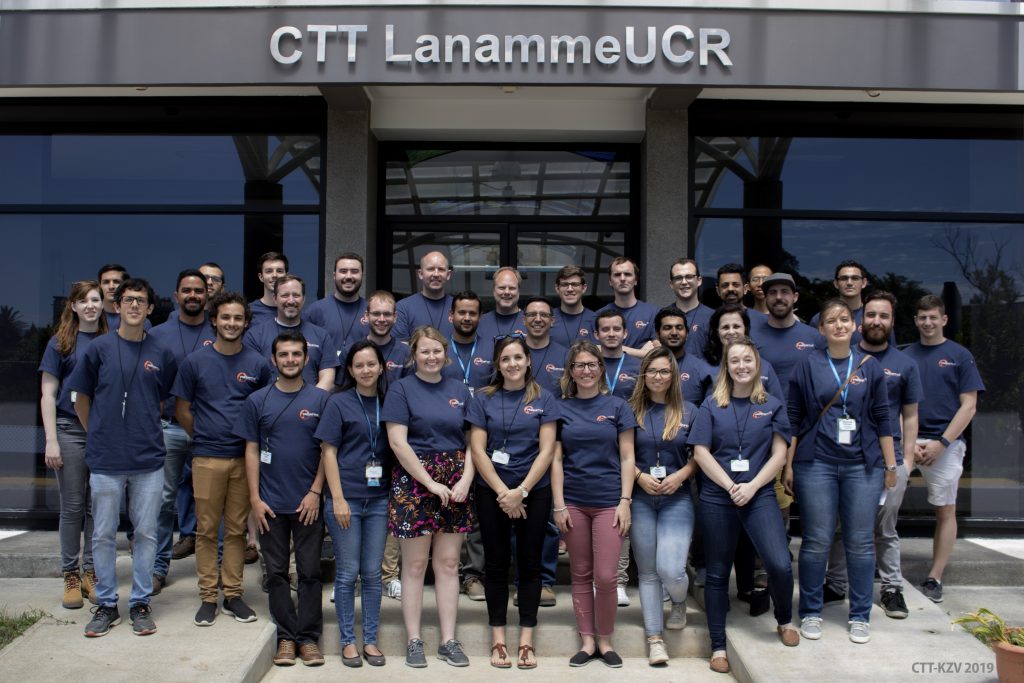Lissette Fernandez, a Clarkson Ph.D. student in Civil and Environmental Engineering advised by Prof. Steve Wojtkiewicz, just returned from Costa Rica where she was one of only 15 graduate students from around the U.S. selected to participate in the National Science Foundation (NSF) funded Advanced Studies Institute (ASI) on the topic of Resilience of Aging Infrastructures.

Lissette Fernandez is pictured with her ASI group. She is in the pink pants.]
This ASI is the first of six to be held over the next three years, hosted by PREEMPTIVE (Pacific Rim Earthquake Engineering Mitigation Protective Technologies International Virtual Environment), an NSF funded effort led by Profs. Erik A. Johnson and Gisele Ragusa of the University of Southern California and Prof. Richard E. Christenson of the University of Connecticut. The goal of the PREEMPTIVE ASIs is to build a diverse community of researchers across the Pacific Rim, and beyond, who share a focused interest in understanding, promoting and accelerating the adoption of protective systems to provide resilience for building and infrastructure systems and ensure sustainable societies.
The week-long institute consisted of workshops and presentations by local and U.S. faculty to understand the past effects and future risks of natural hazards on infrastructure in Costa Rica and to highlight protective systems successes, failures and research needs. The students also participated in cultural and technical tours to explore and understand the performance of protective systems in recent natural hazards. They visited one of Costa Rica’s many active volcanoes that overlooks the San José metropolitan area, stopped at a number of bridges that were damaged in the 1991 Limón earthquake but still have not repaired, took a tour of Costa Rica’s largest new port, and visited one of the national parks to view some of Costa Rica’s natural habitats.
The group also had two days of collaborative group projects, which provided guided experiential learning experiences to implement a multidisciplinary project; each group, composed of both U.S. graduate students and Costa Rican students and junior researchers, developed a white paper to pose a possible research project that addresses infrastructure and protective systems needs in both the U.S. and Costa Rica.
Fernandez said the trip was a great learning experience, “The structural conditions of bridges in Costa Rica parallel the aging and damaged infrastructure in many parts of the United States. My participation in this research experience was very instructive and beneficial as it greatly increased my understanding of the importance of protective systems in improving the health of aging infrastructure around the developed world.”
Click here for a shareable link: https://www.clarkson.edu/news/clarkson-graduate-student-travels-costa-rica-nsf-sponsored-advanced-studies-institute-aging
